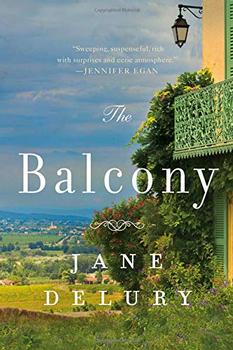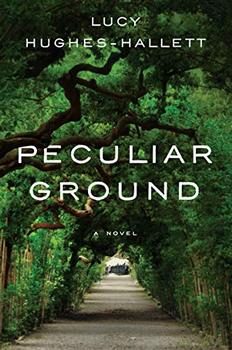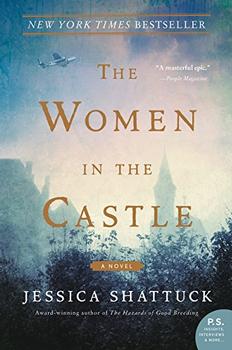Summary | Excerpt | Reviews | Beyond the book | Read-Alikes | Genres & Themes | Author Bio

A century-spanning portrait of the inhabitants of a French village, revealing the deception, despair, love, and longing beneath the calm surface of ordinary lives.
What if our homes could tell the stories of others who lived there before us? Set in a small village near Paris, The Balcony follows the inhabitants of a single estate-including a manor and a servants' cottage-over the course of several generations, from the Belle Époque to the present day, introducing us to a fascinating cast of characters. A young American au pair develops a crush on her brilliant employer. An ex-courtesan shocks the servants, a Jewish couple in hiding from the Gestapo attract the curiosity of the neighbors, and a housewife begins an affair while renovating her downstairs. Rich and poor, young and old, powerful and persecuted, all of these people are seeking something: meaning, love, a new beginning, or merely survival.
Throughout, cross-generational connections and troubled legacies haunt the same spaces, so that the rose garden, the forest pond, and the balcony off the manor's third floor bedroom become silent witnesses to a century of human drama.
In her debut, Jane Delury writes with masterful economy and profound wisdom about growing up, growing old, marriage, infidelity, motherhood - in other words, about life - weaving a gorgeous tapestry of relationships, life-altering choices, and fleeting moments across the frame of the twentieth century. A sumptuous narrative of place that burrows deep into individual lives to reveal hidden regrets, resentments, and desires, The Balcony is brimming with compassion, natural beauty, and unmistakable humanity.
Delury challenges our assumptions by providing a messy, complicated view of place fraught with individual emotions and stories rather than a cohesive narrative of an inherently benevolent or evil location. In this sense, the estate reflects the characters that tell its story: complex, flawed human beings with both positive and negative qualities. This sweeping generational drama is perfect for readers looking for a modern take on the gothic novel...continued
Full Review
 (806 words)
(806 words)
(Reviewed by Emily Isackson).
Although only a small portion of The Balcony takes place during World War II, its effects on Benneville and the estate affect the arc of the story and its characters. At the beginning of the novel, Brigitte, the au pair, learns that the current owner of the estate, Olga, had Jewish parents who moved there during the Occupation. While they thought they would be safe in the country, they were arrested by the Gestapo and sent to Drancy.
 Drancy Internment Camp served as a concentration camp in occupied France, located in Drancy, a northern suburb of Paris. Initially, the Germans seized the public housing structures in 1941. When French police began arresting Jews that summer, Drancy housed them until March of 1942 when the detainees were ...
Drancy Internment Camp served as a concentration camp in occupied France, located in Drancy, a northern suburb of Paris. Initially, the Germans seized the public housing structures in 1941. When French police began arresting Jews that summer, Drancy housed them until March of 1942 when the detainees were ...

If you liked The Balcony, try these:

by Lucy Hughes-Hallett
Published 2019
The Costa Award-winning author of The Pike makes her literary fiction debut with an extraordinary historical novel in the spirit of Wolf Hall and Atonement - a great English country house novel, spanning three centuries, that explores surprisingly timely themes of immigration and exclusion.

by Jessica Shattuck
Published 2018
Three women, haunted by the past and the secrets they hold.